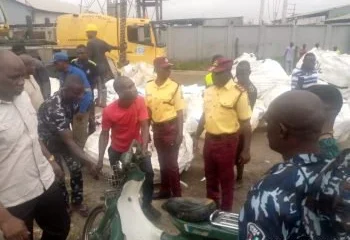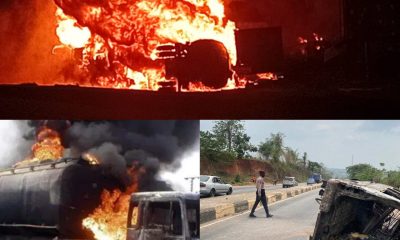Crash News
Hit-and-Run Drivers Kill Three Prominent Nigerians in 11-Day

In the space of just 11 days in October 2025, Nigeria witnessed the deadly culmination of hit-and-run incidents involving three prominent citizens, a labour activist in Ogun State, a senior Lagos civil servant, and a university lecturer in Kogi State.
Also Read: Deadliest Car Accidents in History: Lessons Learned from Tragedy
Each death has reignited public outrage over the nation’s chronic failure to enforce road safety laws and hold reckless drivers accountable.
The Victims and Circumstances
1. Labour Activist Abiodun Aremu (Ogun State)
On Sunday, October 12, 2025, “Abiodun Aremu”, a respected labour activist and Secretary of the Joint Action Front (JAF), was struck by a speeding vehicle while crossing the road near his home in Ota, Ogun State around 6 p.m. His death triggered protests from labour groups demanding improved pedestrian safety and driver accountability.
2. Senior Civil Servant Serifat Talabi (Lagos State)
Just six days later, on October 18, 2025, Serifat Olubukola Talabi, the Director of Procurement at the Lagos State Residents Registration Agency (LASRRA), was knocked down by a hit-and-run driver on the busy Lagos–Ibadan Expressway near the RCCG Camp in Ibafo, Ogun State. The incident occurred mere days before her retirement and 60th birthday.
3. University Lecturer Emmanuel-Olowonubi Oluwakemi (Kogi State)
A week later, in Kogi State’s Felele–Crusher Junction, a trailer reportedly knocked down Mrs. Emmanuel-Olowonubi Oluwakemi, a beloved lecturer in Theatre Arts at the Federal University Lokoja. Her death further exposed the pattern of heavy-duty vehicles evading daytime restrictions and endangering vulnerable road users.
Patterns & Underlying Problems
Each of these cases shares a common thread: the offending driver fled the scene (hit-and-run) and the victims were either crossing at vulnerable times (evening rush, night), or were pedestrians/educators, groups less protected in Nigeria’s enforcement environment.
In the case of the lecturer, the trailer that struck her was operating on a road where daytime trailer bans had been declared but not enforced. This reflects a broader failure of regulatory oversight, particularly for large vehicles that pose disproportionate risk.
The deaths of such well-known individuals brought public attention and outrage. Labour unions, academic communities, and civil servants’ bodies all demanded action. But for many Nigerians, the question is: Will anything change this time, or will this become another static outrage-cycle?
RoadKing Analysis: What Needs to Happen
- Investigation & Transparency
- Full accident investigations must be publicly disclosed: vehicle details, driver status, speed data, trailer/night ban compliance.
- Families of victims must be supported to seek justice.
- Heavy Vehicle Enforcement
- Daytime restrictions on trailers must be strictly enforced, with automated weigh-bridges and check-points.
- Trailer drivers and owners must be held accountable for operations outside permitted hours.
- Pedestrian Safety Upgrades
- Key roads like Lagos–Ibadan Expressway, Felele–Crusher Junction, and Ota areas must get pedestrian crossings, lighting, and speed limit enforcement.
- Reflexive signage and speed cameras must protect foot-traffic zones.
- Hit-and-Run Penalties
- Nigeria must treat hit-and-run as a distinct serious offence with mandatory jail terms and driver licence revocation.
- Surveillance cameras at accident migration points and roadside CCTV must be expanded.
- Public Awareness Campaigns Targeting High Risk Zones
- Educate commuters, especially those in industrial and educational campuses, about risk times and heavy-vehicle behaviours.
- Coordinate with unions and universities to build safety culture around pedestrian-heavy zones.





















